#Saint Isaac of Syria
Explore tagged Tumblr posts
Text

"What Christianity most has to offer the world now is not moral guidance or activism or yet another social program; it is a mystical connection to the Source of life. Cultivating that divine-human love affair seems to me the only hope left. Not as some kind of opiate-of-the-people escape from our problems, but as a nonlinear path that leads us deeper into them. Christianity has no exclusive claim on this relationship. It does have a two-thousand-year-old history full of reliable matchmakers: the Desert Fathers and Mothers, Isaac of Syria, Teresa of Avila, Howard Thurman, Simone Weil, Oscar Romero, Thomas Merton . . . the list is long. We can choose our guides. The inner journey into love is taken not for the self, but on behalf of all life.
"The purpose of the early desert hermits", Merton wrote, "was to withdraw into the healing silence of the wilderness . . . not in order to preach to others but to heal in themselves the wounds of the entire world"
From seventh-century Ninevah, in what is now Iraq, Saint Isaac of Syria wrote: "An elder was once asked, "What is a compassionate heart?" He replied: "It is a heart on fire for the whole of creation, for humanity, for the birds, for the animals, for demons and for all that exists."
Christianity will truly come into its own in the Anthropocene, I believe, when it fully embraces that path to compassion, when it refuses to look away from the ecological Good Friday we are inflicting on the world. Only then will our actions, humbled and chastened, flow from compassion rather than from guilt. This requires a shift in vision, a redirecting of our gaze back to the One who loved the world into being and who sustains its every breath."
~ Fred Bahnson
(Ian Sanders)
#desert fathers#Fred Bahnson#Ian Sanders#Christianity#desert fathers and mothers#Saint Isaac of Syria#a compassionate heart
11 notes
·
View notes
Text

11 notes
·
View notes
Text

23 notes
·
View notes
Text

Saint Isaac the Syrian
c. 613 - c. 700
Feast Day: January 28
Saint Isaac of Syria, also known as Isaac of Nineveh entered a monastery at a young age and received an excellent education. He then taught theology while emphasizing God’s love, mercy, and the works of the Holy Spirit. St. Isaac was installed as the Bishop of Ninevah but left after 5 months to live a life of solitude, poverty, contemplation, and total surrender to God. His writings are still treasured today for their spiritual insights.
Prints, plaques & holy cards available for purchase here: (website)
#saintisaacthesyrian#Portraitsofsaints#Feastday#Saintoftheday#saintportrait#Catholicsaint#catholicillustrator#saintart#Catholicart
33 notes
·
View notes
Text
Saints&Reading: Tuesday, February 28, 2023
february 28_february 15
THE VENERABLE EUSEBIUS HERMIT OF SYRIA (400)
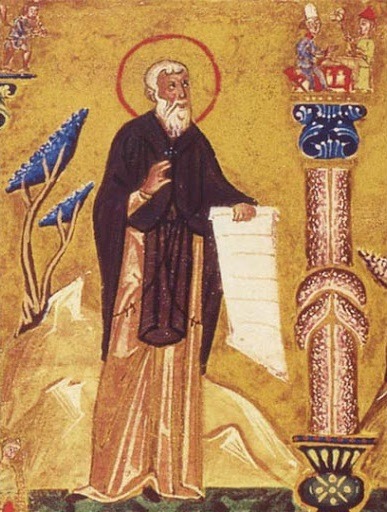
Saint Eusebius the Hermit lived in the fourth century in asceticism on a mountain near the village of Asicha in Syria. He led a very strict life under the open sky, patiently enduring the summer heat and winter cold. He wore skins for clothing and nourished himself on the pods of peas and beans.
Though elderly and infirm, he ate only fifteen figs during the Great Forty-day Fast. When many people began to flock to Saint Eusebius, he went to a nearby monastery, built a small enclosure at the monastery walls, and lived there until his death.
Saint Eusebius died at ninety, sometime after the year 400.
Source: Orthodox Church in America_OCA
ST. DALMATUS, ABBOT, AND FOUNDER OF THE DORMITION MONASTERY IN SIBERIA (1697)

Saint Dalmatius is venerated as a pioneer of the movement that took many ascetics to dwell in the wilderness of Siberia, establishing a new company of Desert Fathers and causing the Russian Far North to be called the 'Northern Thebaid.' He was born in Tobolsk and reared in piety by his family, recently-converted Tatars. When grown, he entered the imperial army as a Cossack and served with such distinction that the Tsar awarded him a noble title. He married and lived in Tobolsk in comfort and prosperity. One day — after the destruction of Tobolsk in a great fire in 1643 — struck by a realization of the vanity of worldly things, he left family, wealth, and property and went to a monastery in the Ural Mountains, taking with him only an icon of the Dormition of the Theotokos. He was tonsured a monk named Dalmatius and devoted himself to prayer and ascesis with such fervor that, a short time later, the brethren elected him Abbot. Fearing pride and fleeing honor, Dalmatius fled with his icon of the Theotokos to a remote cave, where he lived a life of silence and continual prayer. His presence did not long remain secret in that sparsely-settled region, and soon Christians were coming from far and wide to ask his prayer and counsel; many pagans came to him for holy Baptism. Soon his habitation became too small for those who had chosen to stay as his disciples, and the Saint received a blessing from the Bishop of Tobolsk to build a wooden chapel and some cells. This was the beginning of the great Monastery of the Dormition (also called the Monastery of St Dalmatius). Over the years, the brethren endured many tribulations. Once, the Tatar Prince of the region, provoked by false rumors, planned to destroy the monastery and kill all the monks. The night before the attack, the holy Mother of God appeared to the prince in resplendent clothes, holding a flaming sword in one hand and a scourge in the other. She forbade the Prince to harm the monastery or the brethren and commanded him to give them a permanent concession over the region. Convinced by this vision, the Prince made peace with the monks and became the Monastery's protector, though he was a Muslim. In the succeeding years, the Monastery was repeatedly burned down by the fierce pagan tribes which inhabited the area; once, all the monks except St Dalmatius were butchered, but the monastery was always rebuilt. The Saint reposed in peace in 1697 and was succeeded as abbot by his son Isaac, who built a stone shrine at the Monastery to house the relics of the Saint and the icon of the Mother of God, which he had kept with him throughout his monastic life.
Source: Ancient Faith ministries
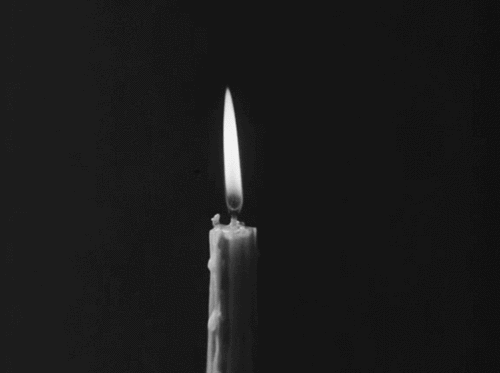
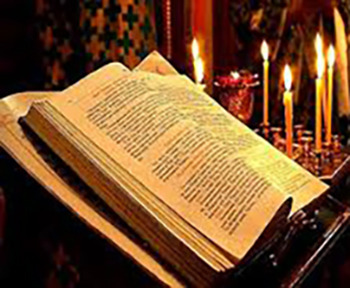
ISAIAH 1:19-2:3
19 If you are willing and obedient, You shall eat the good of the land; 20 But if you refuse and rebel, You shall be devoured by the sword”; For the mouth of the Lord has spoken. 21 How the faithful city has become a harlot! It was full of justice, Righteousness lodged in it, But now murderers. 22 Your silver has become dross, Your wine mixed with water. 23 Your princes are rebellious companions of thieves; Everyone loves bribes And follows after rewards. They do not defend the fatherless, Nor does the widow's cause come before them. 24 Therefore the Lord says, The Lord of hosts, the Mighty One of Israel, “Ah, I will rid Myself of My adversaries, And take vengeance on My enemies. 25 I will turn My hand against you, thoroughly purge away your dross, And take away all your alloy. 26 I will restore your judges and counselors as at the beginning. Afterward, you shall be called the city of righteousness, the faithful city.” 27 Zion shall be redeemed with justice And her penitents with righteousness. 28 The destruction of transgressors and of sinners shall be together, And those who forsake the Lord shall be consumed. 29 For they shall be ashamed of the terebinth trees Which you have desired; And you shall be embarrassed because of the gardens Which you have chosen. 30 For you shall be as a terebinth whose leaf fades, And as a garden with no water. 31 The strong shall be as tinder, And the work of it as a spark; Both will burn together, And no one shall quench them.
1The word that Isaiah the son of Amoz, saw concerning Judah and Jerusalem.
2 Now it shall come to pass in the latter days That the mountain of the Lord’s house Shall be established on the top of the mountains, and exalted above the hills, And all nations shall flow to it. 3 Many people shall come and say, “Come, and let us go up to the mountain of the Lord, To the house of the God of Jacob; He will teach us His ways, And we shall walk in His paths.” For out of Zion shall go forth the law And the word of the Lord from Jerusalem.
PROVERBS 1:20-33
20 Wisdom calls aloud outside; She raises her voice in the open squares. 21 She cries out in the chief concourses, At the openings of the gates in the city She speaks her words: 22 “How long, you simple ones, will you love simplicity? For scorners delight in their scorning, And fools hate knowledge. 23 Turn at my rebuke; Surely I will pour out my spirit on you and make my words known to you. 24 Because I have called and you refused, I have stretched out my hand and no one regarded, 25 Because you disdained all my counsel, And would have none of my rebuke, 26 I also will laugh at your calamity; I will mock when your terror comes, 27 When your terror comes like a storm, And your destruction comes like a whirlwind, When distress and anguish come upon you. 28 Then they will call on me, but I will not answer; They will seek me diligently but not find me. 29 Because they hated knowledge And did not choose the fear of the Lord, 30 They would have none of my counsel And despised my every rebuke. 31 Therefore they shall eat the fruit of their own way, And be filled to the full with their own fancies. 32 For the turning away of the simple will slay them, And the complacency of fools will destroy them; 33 But whoever listens to me will dwell safely, And will be secure, without fear of evil.”
#orthodoxy#orthodoxchristianity#easternorthodoxchurch#originofchristianity#spirituality#holyscriptures#bible#oldtestament
3 notes
·
View notes
Video
youtube
Luke 2v16 - 21: The birth of Jesus in the Manger of the Inn. I also incl... Luke 2v16 - 21: The birth of Jesus in the Manger of the Inn. I also included all the PROOFS of His Virgin Birth. https://youtu.be/HQPiUkzba-E Holy Gospel of our SUPERNATURAL FATHER of our supernatural “souls” Elohim, Allah, ParBrahm, etc., delivered by the first Anointed Christ, which in my native language Punjabi, we call Satguru Jesus of the highest living God Elohim, Allah, Parbrahm, etc. that dwells within His most beautiful living Temple of God created by the greatest artist demiurge Potter, the lord of the visible Nature Yahweh, Brahma, Khudah, etc. and it is called Harmandir or “Emmanuel” if you are not “greedy” according to Saint Luke 2,16-21. The shepherds went in haste to Bethlehem and found Mary and Joseph, and the infant lying in the manger. When they saw this, they made known the message that had been told them about this child. All who heard it were amazed by what had been told them by the shepherds. And Mary kept all these things, reflecting on them in her heart. Then the shepherds returned, glorifying and praising God for all they had heard and seen, just as it had been told to them. When eight days were completed for his circumcision, he was named Jesus, the name given him by the angel before he was conceived in the womb. Intuition - Taught by God:- Circumcision is the Tribal Mark or Covenant of Abraham to Isaac and his seed ONLY. Angel Stephen warned them not to make fake sons of Abraham but they killed him. https://youtu.be/hhJIzWLxdAQ The Circumcision of the flesh was so much floated by the Temple Priests that it has become OBSOLETE. https://youtu.be/oOqHQc3kjA8 The Promised Land belongs to the Faithful sons of Abraham and not to fake "Saltless" Jews outwardly who cannot build their tribal "Covenant" with Abraham. https://youtu.be/5vpu-FYuBuM Return under Moses faithful to Abraham, and Yahweh “Wheat” plants whilst under Christ Jesus just the opposite “Tares” – Matt 13v24-30. https://youtu.be/cKvnXH538WE END TIME GOSPEL TRUTH – FREE LECTURES AND SEMINARS. www.gnosticgospel.co.uk/JAntisem.htm www.gnosticgospel.co.uk/GistEndGospel.htm Other:- www.gnosticgospel.co.uk/Nobility.htm http://www.gnosticgospel.co.uk/tenlights.htm http://www.gnosticgospel.co.uk/JattIslam.htm Proofs of the Virgin Birth of Jesus: - www.gnosticgospel.co.uk/bojes.htm Matt 21v33-46:- As the Jews killed the Prophets and then collected money from the devotees, so they did the Messianic Jews to Christ Jesus and created the Antichrist Pope and his killer stooges. https://youtu.be/aOH6r380ECo Super Hitler tribal Putin will destroy Blasphemer USA and the West as the German Hitler killed the unfaithful to Abraham and Yahweh sinner Jews outwardly. https://youtu.be/FQ9TyEEZcDQ There were no WMD in Iraq and these Blasphemer USA and Western nations destroyed his peaceful country. These evil-spirited Blasphemers against the Holy Spirit destroyed many more countries like Libya and they are not forgivable as the sinners are. Super Hitler Putin will punish the Blasphemer USA and the West. The tribal people of Salt are of God whilst Mammon and Media are of Satan. https://youtu.be/NIB8q3YiQZs The Udege tribal Son of Man Super Hitler Putin speaks the truth versus the great blasphemers of the USA and the West. Blasphemy against the Holy Spirit is not forgivable and Putin will punish them very hard. https://youtu.be/WCjpz-_w0y0 Thus, everyone is to give his account to God and you cannot blame anyone other than yourself for not waking up to the Golden Occasion of resurrection. Just wean off the Milk, and the Scriptures and go for the refreshing Meat of Jesus for your Daily Bread of Life. Then, put on your Cross and enjoy the Blood of Christ by Preaching the Gospel from the Rooftops. This is America - Israel in Disguise:- Grim American Jewish Reaper waving sickle to kill more in Venezuela as they did in Iraq, Libya, Syria, Ukraine, etc. www.gnosticgospel.co.uk/GrimReaper.htm Allah is NOOR and you cannot apply Sharia Laws that bind you on NOOR that sets you FREE. This Islam is not of Allah called INSHALLAH but of Mullahs called Inshmullah. Our Khokhar Jatt Chaudhry Saddam Hussein Khokhar Jatt was executed by the American Jews. My ebook by Kindle. ASIN: B01AVLC9WO www.gnosticgospel.co.uk/JAntisem.htm YouTube Channel:- Jatt Unity Ch. Chhotu Ram Ohylan:- https://www.youtube.com/watch?v=ogc8-g5e_Og Any helper to finish my Books:- ONE GOD ONE FAITH:- www.gnosticgospel.co.uk/bookfin.pdf and in Punjabi KAKHH OHLAE LAKHH:- www.gnosticgospel.co.uk/pdbook.pdf EXPOSES the CROOK KHATRIS:- Punjab Siyan. John's baptism:- www.gnosticgospel.co.uk/johnsig.pdf Trinity:- www.gnosticgospel.co.uk/trinity.pdf
0 notes
Quote
Rejoice with the joyous and weep with those who weep; for this is the sign of limpid purity. Suffer with those who are ill and mourn with sinners; with those who repent, rejoice. Be a partaker in the sufferings of all men. Rebuke no one, revile no one, not even men who live very wickedly. Spread your cloak over the man who is falling; cover him.
Saint Isaac of Syria, Ascetical Homilies
1 note
·
View note
Photo

He who is master of possessions, is the slave of passions. Do not estimate gold and silver only as possessions, but all things thou possess for the sake of the desire of thy will.
+ St. Isaac the Syrian, “Six Treatise on the Behavior of Excellence,” IV, Mystic Treatises By Isaac Of Nineveh
#Eastern Orthodoxy#eastern orthodox#roman catholic#catholic#orthodox#Saint Isaac The Syrian#saint isaac of syria
7 notes
·
View notes
Quote
It is impossible to draw near to God without sorrows, without which human righteousness cannot remain unchanged… If you desire virtue, then give yourself to every affliction, for afflictions produce humility. If someone abides in virtue without afflictions, the door of pride is opened to him.
St. Isaac The Syrian
#St Isaac of Syria#st isaac the syrian#saint#saint quote#saint quotes#catholic saint#st isaac the syrian quotes#st isaac of syria quotes#catholic#catholic quotes#catholic quote#catholicism#being catholic#roman catholic#catholic church#the catholic church#quote#quotes
53 notes
·
View notes
Photo
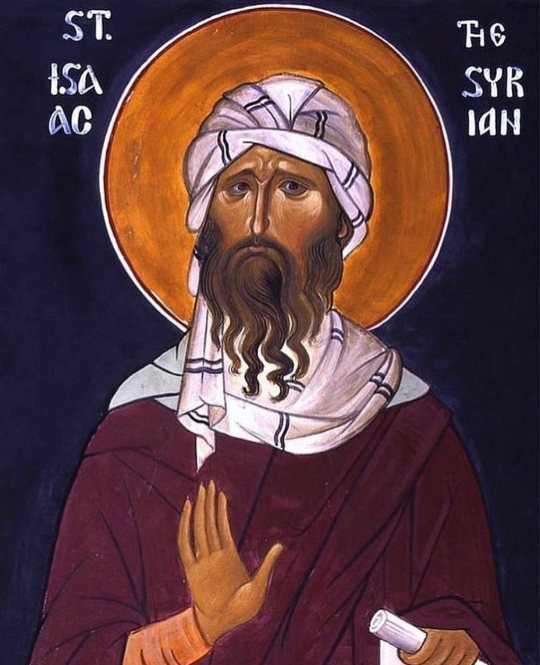
Today we also celebrate the Venerable Isaac the Syrian. Saint Isaac, Bishop of Ninevah, lived during the sixth century. He and his brother entered the monastery of Mar Matthew near Ninevah and received the monastic tonsure. His learning, virtue, and ascetic manner of life attracted the notice of the brethren, and they proposed that he head the monastery. Saint Issac did not want this burden, preferring a life of silence, so he left the monastery to live alone in the desert. His brother urged him more than once to return to the monastery, but he would not agree. However, when the fame of Saint Isaac’s holy life had spread, he was made Bishop of Ninevah. Seeing the crude manners and disobedience of the inhabitants of the city, the saint felt that it was beyond his ability to guide them, and moreover, he yearned for solitude. Once, two Christians came to him, asking him to settle a dispute. One man acknowledged that he owed money to the other, but asked for a short extension. The lender threatened to bring his debtor to court to force him to pay. Saint Isaac, citing the Gospel, asked him to be merciful and give the debtor more time to pay. The man said, “Leave your Gospel out of this!” Saint Isaac replied, “If you will not submit to Lord’s commandments in the Gospel, then what remains for me to do here?” After only five months as bishop, Saint Isaac resigned his office and went into the mountains to live with the hermits. Later, he went to the monastery of Rabban Shabur, where he lived until his death, attaining a high degree of spiritual perfection. From the early eighth century until the beginning of the eighteenth century, nothing was known about Saint Isaac of Syria in Europe except for his name and works. Only in 1719 was a biography of the saint published at Rome, compiled by an anonymous Arab author. In 1896, more information on Saint Isaac came to light. The learned French soteriologist Abbot Chabot published some eighth century works on Syrian history by Iezudena, bishop of Barsa, where the account of Saint Isaac the Syrian was found. May he intercede for us always + Source: https://www.oca.org/saints/lives/2019/01/28/100333-saint-isaac-the-syrian-bis (at Mosul, Iraq) https://www.instagram.com/p/CjEFB6jrc1T/?igshid=NGJjMDIxMWI=
11 notes
·
View notes
Note
hey! I was wondering if you had any reading recommendations for someone who’s new to Orthodoxy? thank you 💛
The Bible? I’m joking, kind of; some people have said that reading the Bible is what made them an atheist, weirdly enough I credit an atheist reading the Bible with renewing my faith but I digress. I think it really depends on how new you are to religion, Christianity or Orthodoxy but here are some of my favorites, most if not all exist in physical form but links provided to eBooks/online when I can find them!
A forewarning, my definition of “beginner” might be a bit broad so I’ll BOLD the ones I think are very easy and the rest are...probably not for beginners but I still would recommend to everyone.
The Orthodox Way by Kallistos Ware (this one is praised a lot on Orthodox Reddit for bringing beginners into the fold; it’s a great starting point)
Introducing Eastern Orthodox Theology by Andrew Louth
Orthodox Prayer Book (just good to know prayers!)
The Orthodox Study Bible (a book not written fully by Orthodox, more written for people trying to get into Orthodoxy. Not bolded because it IS the Bible; it’s got lots of little notes and essays but it’s only really good for beginners, I grew past it pretty fast, so it has to go here!)
Pearl of Great Price by Sergei Hackel (NOT the book by the LDS church, this is a different one)
The Writings of Mother Maria Skobtsova
Everyday Saints and Other Stories by Archimandrite Tikhon
On Acquisition of the Holy Spirit by St. Seraphim of Sarov
The Philokalia (very difficult but foundational)
The Longer Catechism of The Orthodox, Catholic, Eastern Church
The Art of Salvation by Elder Ephraim
The Triads by Gregory Palamas (We learned a little about Palamas today in catechism, he’s a very important thinker)
The Spiritual World Of Isaac The Syrian (I very much adore the writings of St. Isaac of Syria so if you can, check him out).
I wish I had some “modern” books, with theology I tend to look towards the Church Father’s first meaning I end up reading a lot of theology written by monks in the 1300s.
Honestly if anyone else has some recommendations for anon or me I’d love to hear them!
Also sorry for the late reply. When I started typing this it was asked seven hours ago but then I had to stop to cook dinner, then eat and etc. so it has been a all day thing apparently. I hope that helps!
58 notes
·
View notes
Photo

"What Christianity most has to offer the world now is not moral guidance or activism or yet another social program; it is a mystical connection to the Source of life. Cultivating that divine-human love affair seems to me the only hope left. Not as some kind of opiate-of-the-people escape from our problems, but as a nonlinear path that leads us deeper into them. Christianity has no exclusive claim on this relationship. It does have a two-thousand-year-old history full of reliable matchmakers: the Desert Fathers and Mothers, Isaac of Syria, Teresa of Avila, Howard Thurman, Simone Weil, Oscar Romero, Thomas Merton . . . the list is long. We can choose our guides. The inner journey into love is taken not for the self, but on behalf of all life.
"The purpose of the early desert hermits", Merton wrote, "was to withdraw into the healing silence of the wilderness . . . not in order to preach to others but to heal in themselves the wounds of the entire world"
From seventh-century Ninevah, in what is now Iraq, Saint Isaac of Syria wrote: "An elder was once asked, "What is a compassionate heart?" He replied: "It is a heart on fire for the whole of creation, for humanity, for the birds, for the animals, for demons and for all that exists."
Christianity will truly come into its own in the Anthropocene, I believe, when it fully embraces that path to compassion, when it refuses to look away from the ecological Good Friday we are inflicting on the world. Only then will our actions, humbled and chastened, flow from compassion rather than from guilt. This requires a shift in vision, a redirecting of our gaze back to the One who loved the world into being and who sustains its every breath."
~ Fred Bahnson
[Ian Sanders]
#quotes#Christianity#Fred Bahnson#Ian Sanders#Thomas Merton#Desert Fathers and Mothers#mysticism#mystical connection to the Source of Life#words and writing#my favorites#light in the darkness
9 notes
·
View notes
Text

13 notes
·
View notes
Text
The kingdom of heaven is called spiritual contemplation

The kingdom of heaven is called spiritual contemplation, for this is what it is. It is not found through the activity of thought, but can be tasted by grace. Until a man cleanses himself, he is in no state even to hear of the Kingdom, for no one can acquire it through teaching, only through purity of heart. God gives pure thoughts to those who live pure lives.
--Isaac the Syrian, bishop of Nineveh
Our venerable father Isaac of Nineveh, also known as Isaac of Syria, is a 7th century saint known for his strict asceticism and ascetic writings. St. Isaac was born in the region of Qatar on the western shore of the Persian Gulf. When still quite young, he entered a monastery with his brother.
https://orthodoxwiki.org/Isaac_of_Syria
2 notes
·
View notes
Photo

Saint Isaac the Syrian c. 613 - c. 700 Feast Day: January 28
Saint Isaac of Syria, also known as Isaac of Nineveh entered a monastery at a young age and received an excellent education. He then taught theology while emphasizing God’s love, mercy, and the works of the Holy Spirit. St. Isaac was installed as the Bishop of Ninevah but left after 5 months to live a life of solitude, poverty, contemplation, and total surrender to God. His writings are still treasured today for their spiritual insights. {website}
36 notes
·
View notes
Text
Saints&Reading: Thursday, April 25, 2024
april 17_april 25
VENERABLE ISAAC THE SYRIAN, ABBOR OF SPOLETO ( Italy ca 550)

Saint Isaac, the Syrian, lived during the mid-sixth century. He came to the Italian city of Spoleto from Syria. The saint asked permission from the churchwardens to remain in the temple and
prayed in it for two and a half days. One of the churchwardens began to reproach him with hypocrisy and struck him on the cheek. Then the punishment of God came upon the churchwarden. The devil threw him down at the feet of the saint and cried out, “Isaac, cast me out!” Just as the saint bent over the man, the unclean spirit fled.
News of this quickly spread throughout the city. People began to flock to the saint, offering him help and the means to build a monastery. The humble monk refused all this. He left the city and settled in a desolate place, where he built a small cell. Disciples gathered around the ascetic, and so a monastery was formed. When his disciples asked the Elder why he had declined the gifts, he replied, “A monk who acquires possessions is no longer a monk.”
Saint Isaac was endowed with the gift of clairvoyance. Saint Gregory Dialogus (March 12) speaks of this in his “Dialogues About the Lives and Miracles of the Italian Fathers.” Once, Saint Isaac bade the monks to leave their spades in the garden for the night, and in the morning he asked them to prepare food for the workers. Some robbers, equal to the number of spades, had come to rob the monastery, but the power of God forced them to abandon their evil intent. They took the spades and began to work. When the monks arrived in the garden, all the ground had been dug up. The saint greeted the toilers and invited them to refresh themselves with food. Then he admonished them to stop their thievery, and gave them permission to come openly and pick the fruits of the monastery garden.
Another time, two almost naked men came to the saint and asked him for clothing. He told them to wait a bit, and sent a monk into the forest. In the hollow of a tree he found the fine clothes the travelers had hidden in order to to deceive the holy igumen. The monk brought back the clothes, and Saint Isaac gave them to the wanderers. Seeing that their fraud was exposed, they fell into great distress and shame.
It happened that a certain man sent his servant to the saint with two beehives. The servant hid one of these hives along the way. The saint said to the servant, “I accept the gift, but be careful when you go back for the beehive that you hid. Poisonous snakes have entered into it. If you stretch forth your hand, they will bite you.” Thus the saint unmasked the sins of people wisely and without malice, desiring salvation for all.
Saint Isaac died in 550. This saint should not be confused with the other Saint Isaac the Syrian, Bishop of Ninevah, who lived during the seventh century (January 28).
VENERABLE ATHANASIA, ABESSE OF AEGINA (860)
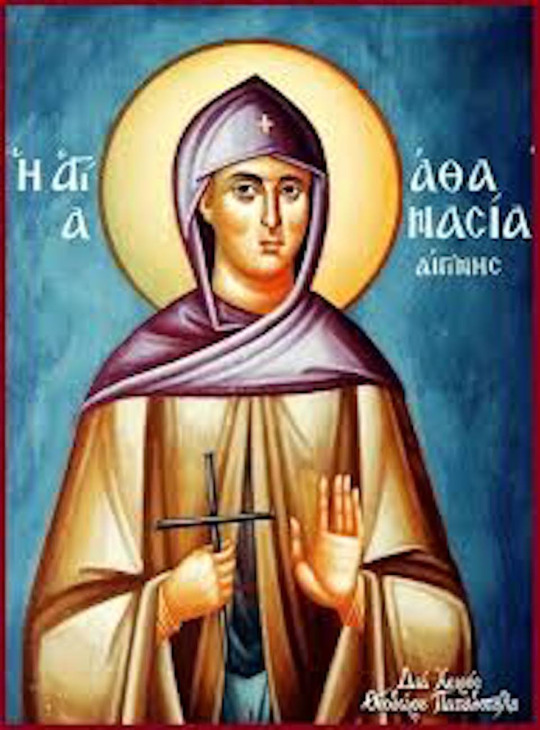
Saint Athanasia was abbess of a monastery on the island of Aegina in the ninth century. She was born into a pious Christian family, and her parents were named Nicetas and Marina. Already at seven years of age the girl studied the Psalter, which she read constantly and with feeling. Once, while working at the weaver’s loom, Saint Athanasia saw a shining star coming down to her from above, which touched her bosom and lightened all her being, and then disappeared. From that moment, the maiden was illumined in soul and she firmly resolved to enter a monastery.
When Saint Athanasia reached the age of sixteen, her parents entreated her to marry. She consented, but after sixteen days her husband was killed by barbarians who invaded Aegina.
Saint Athanasia decided to take advantage of her unexpected freedom and dedicate herself to God. Then the emperor Michael the Stammerer (820-829) issued a decree ordering all young widows and virgins to take husbands. Therefore, Saint Athanasia was forced to marry again. It is said that her second husband was a Moslem, whom she converted by her holy way of life.
She led a pious and virtuous life. She did housework, helped the sick and those in need, and took in wanderers. On Sundays and feastdays she invited family and acquaintances to her home and read the Holy Scriptures to them. Under her influence, her husband entered a monastery, and progressed in virtue and holiness. Soon, he departed to the Lord.
The saint gave away her property, became a nun, and founded a women’s monastery in a remote place. After four years, the sisters asked Saint Athanasia to become the abbess of the small community. In spite of her position, the saint surpassed all the others in meekness and humility. She asked about the infractions of the sisters with love, not anger.
Although Saint Athanasia had the title of abbess, she regarded herself as the least of the sisters and always had in mind the commandment of the Savior: “Whoever would be first among you, let him be your servant” (Mt. 20:27). The saint never permitted the sisters to wait on her, not even to pour water over her hands.
Saint Athanasia wore a hair-shirt, and over it clothes of coarse sheep’s wool. She slept very little, and prayed most of the night. By day she labored together with the sisters. On most days she ate only bread and water, and that in moderation, and only after the ninth hour of the day. She never ate cheese or fish except on Pascha and on the twelve Great Feasts. During Lent, she did not eat bread or drink water. She would only eat some vegetables every other day.
On the island of Aegina lived a certain monk named Matthew, who had been an igumen. Each night he read the whole PSALTER, and also read prayers. The saint slept sitting up and only for a short time. He could not refrain from tears when the Psalms were chanted, while reading prayers, or offering the Bloodless Sacrifice.
He wore only a coarse hair-shirt, and through his temperance and struggles his body became completely withered. He had a special love for Saint John the Theologian. Once, during the the Divine Liturgy he saw the Apostle standing by the altar table.
The saint healed a paralytic with his mantle; by making the Sign of the Cross he corrected the face of a man distorted by the actions of the devil; he cast out demons and worked many other miracles. Saint Matthew blessed Saint Athanasia to go to a more isolated place with her sisters. She built a monastery on a desolate hill of the island near an ancient church of the Protomartyr Stephen.
Saint Athanasia was granted the gift of healing by God. After she healed a man afflicted with a malady of the eyes, a crowd of people began to flock to her in order to receive healing from their infirmities of soul and body. From the abundant gifts brought to the monastery, she built three churches at the monastery: one dedicated to the Most Holy Theotokos, another to the holy Prophet John the Forerunner, and the third to Saint Nicholas the Wonderworker.
Her increasing celebrity distressed the saint, and she took the two sisters closest to her in spirit (Maria and Eupraxia) and went secretly to Constantinople. There, as a simple nun, she entered one of the women’s monasteries, where she lived for seven years.
Again, her holy life attracted attention. The sisters of the Aegina monastery learned where their abbess had gone, and they went to her imploring her to return. Submitting to the will of God, she returned to the monastery she founded. Soon after this she had a vision of two radiant men, giving her a document which said: “Here is your freedom, take it and rejoice.”
Saint Athanasia spent the twelve days before her death in unceasing prayer. On the eve of the Dormition of the Most Holy Theotokos she summoned the sisters and said that she was able to read the PSALTER only as far as the twelfth Psalm. The saint asked them to continue reading the PSALTER for her in church. The sisters went to church and there fulfilled her request, and then they came to bid the saint farewell. She blessed them and asked them to celebrate the Feast of the Dormition of the Most Holy Theotokos solemnly and joyfully, and also to provide a meal for the poor and destitute. Then, after Divine Liturgy, they could bury her body. With these words, Saint Athanasia fell asleep in the Lord on August 14, 860.
The saint predicted that she would receive glory in Heaven forty days after her death. On the fortieth day, two devout sisters were granted to see Saint Athanasia and two radiant men standing before the royal doors of the iconostasis. They clothed her with a purple robe embroidered with gold, pearls, and precious stones. They set a crown on her head, handed her a gleaming staff, and led her through the royal doors into the altar.
Before her death, Saint Athanasia ordered the nuns to feed the poor for forty days. The sisters, however, did not fulfill her request and set out the memorial meal for only ten days. The saint appeared to some of the sisters and said, “Let everyone know that alms given for a departed soul for forty days after death, and food offered to the hungry, appease God. If the departed souls are sinful, they receive forgiveness from God. If they are righteous, then the good deeds bring God’s mercy on the souls of those who perform them.”
Then she thrust her staff into the ground and became invisible. The staff left behind sprouted the next day and became a live tree. A year after the saint’s death, they led a possessed woman to the grave. When they dug up the ground, they then noticed a fragrance and removed the coffin. After she touched it, the demoniac was immediately healed. Then they opened the lid of the coffin and saw the saint’s incorrupt body, from which myrrh flowed.
Saint Athanasia looked like she was asleep. Her face shone brightly, her body was preserved incorrupt and soft, and even her hands were supple. The priests decided to place her body in church. When they transferred the body into a new coffin, the nuns removed the hair-shirt from her holy relics and wanted to dress her in silken clothes, but the hands of Saint Athanasia were so firmly clasped to her bosom, that the nuns could not dress her in the silken garb. Even in death the saint displayed her love for poverty. Then one of the sisters knelt down and began to pray to the saint, saying, “O lady, hear us as you heard us when you lived with us. Now consent to be dressed in these clothes, our humble gift to you.” Saint Athanasia, as though alive, lifted and extended her hands into the clothing.
The holy relics of Saint Athanasia were put into a crypt and became a source of healings.
The Life of Saint Athanasia is found in Vatican codex 1660, which dates from the year 916.
Saint Athanasia of Aegina is commemorated on April 12 (Slavic usage), and on April 18 (Greek usage).
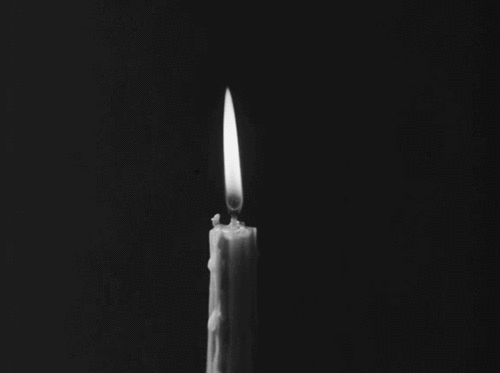
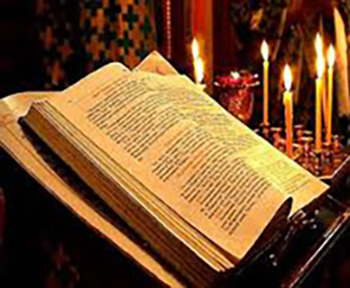
ISAIAH 65:8-16
8 Thus says the Lord: “As the new wine is found in the cluster, And one says, ‘Do not destroy it, For a blessing is in it,’ So will I do for My servants’ sake, That I may not destroy them all. 9 I will bring forth descendants from Jacob, And from Judah an heir of My mountains; My elect shall inherit it, And My servants shall dwell there. 10 Sharon shall be a fold of flocks, And the Valley of Achor a place for herds to lie down, For My people who have sought Me. 11 “But you are those who forsake the Lord, Who forget My holy mountain, Who prepare a table for Gad, And who furnish a drink offering for Meni. 12 Therefore I will number you for the sword, And you shall all bow down to the slaughter; Because, when I called, you did not answer; When I spoke, you did not hear, But did evil before My eyes, And chose that in which I do not delight.” 13 Therefore thus says the Lord God: “Behold, My servants shall eat, But you shall be hungry; Behold, My servants shall drink, But you shall be thirsty; Behold, My servants shall rejoice, But you shall be ashamed; 14 Behold, My servants shall sing for joy of heart, But you shall cry for sorrow of heart And wail for grief of spirit. 15 You shall leave your name as a curse to My chosen; For the Lord God will slay you, And call His servants by another name; 16 So that he who blesses himself in the earth Shall bless himself in the God of truth; And he who swears in the earth Shall swear by the God of truth; Because the former troubles are forgotten, And because they are hidden from My eyes.
GENESIS 46:1-7 (VESPERS, 1ST READING)
1 So Israel took his journey with all that he had, and came to Beersheba, and offered sacrifices to the God of his father Isaac. 2 Then God spoke to Israel in the visions of the night, and said, “Jacob, Jacob!” And he said, “Here I am.” 3 So He said, “I am God, the God of your father; do not fear to go down to Egypt, for I will make of you a great nation there. 4 “I will go down with you to Egypt, and I will also surely bring you up again; and Joseph will put his hand on your eyes.” 5 Then Jacob arose from Beersheba; and the sons of Israel carried their father Jacob, their little ones, and their wives, in the carts which Pharaoh had sent to carry him. 6 So they took their livestock and their goods, which they had acquired in the land of Canaan, and went to Egypt, Jacob and all his descendants with him. 7 His sons and his sons’ sons, his daughters and his sons’ daughters, and all his descendants he brought with him to Egypt.
#orthodoxy#orthodoxchristianity#easternorthodoxchurch#originofchristianity#spirituality#holyscriptures#bible#wisdom#faith#saints
1 note
·
View note